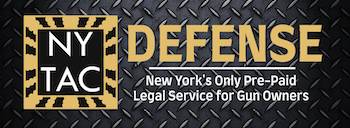Representation.
Motorcycle Only Checkpoints
Motorcycle only checkpoints are used widely across New York City. Many bikers wonder how these checkpoints can be constitutional. One may ask, doesn’t the Fourth Amendment protect me from being pulled over without any cause or suspicion? The answer to that is a little more complex. The Fourth Amendment protects people from unreasonable and invasive searches, examinations and confiscations of people’s homes, papers, vehicles and other articles.
If you have been arrested or ticket while on your motorcycle call us today for a free consultation.
Warrants are generally required before searches are conducted and those warrants must be predicated on probable cause. However, there are searches that are considered reasonable and need no warrant or cause. These type of searches and stops often come in the form of roadblock checkpoints. Such checkpoints may be found close to international borders, in busy intersections during times that people may be known to be drinking and driving, or in the case of motorcycle riders in New York City and the surrounding area, at stretches of road where motorcycles are frequently ridden.
In the case of Wagner v. Sprague, The United States District Court for the Northern District of New York held that the “special needs doctrine” justified motorcycle only checkpoints in New York, and found that those checkpoints were reasonable for Fourth Amendment purposes. This ruling was upheld on appeal by the United States Court of Appeals for the Second Circuit, which is one court beneath the United Sates Supreme Court. The special needs doctrine allows the police to perform suspisionless searches and seizures if special needs exist and exceed the need for regular and average police work. General crime control is specifically prohibited as a justification for a suspicion free stop or search under the special needs doctrine. Courts analyze constitutional challenges to checkpoints justified by special needs in the following manner: First, an inquiry is made into the programmatic purpose of the checkpoint, is the purpose general crime control or something else? Next the court weighs the a variety of competing interests in a balancing test. In this balancing test courts weigh the importance of the issue to the public, how much public concerns are advanced by the program, and how much impact there is on people’s freedom.
In Wagner, the government argued that there was a significant interest in protecting motorcyclist’s safety, therefore the programmatic purpose of the motorcycle only checkpoints exceeded normal police work and was a justified seizure under the special needs doctrine. Specifically, the government argued that the purpose of the checkpoints was to find safety violations, make sure motorcycles were correctly registered, and make sure motorcyclists were actually licensed. The plaintiff motorcyclists counter-argued that the police checkpoints were for the purpose of general crime control, not safety, because the checkpoints did not target speeding and alcohol violations, since speeding and drinking while riding are two of the most common causes of fatal motorcycle accidents, and the fact that the New York State Police gang task force accompanied the officers administering the checkpoints while they received overtime grants for detecting intel on suspected criminals, and enforcing the criminal and traffic laws.
Ultimately, the court did not side with the plaintiffs. The court found that the purpose of the checkpoints was not general crime control, rather, the state proved by a preponderance of the evidence that the purpose was motorcycle safety. When the court weighed the three proscribed factors in the balancing test, the scale fell in the government’s favor. First, the court found that the state’s research and expertise was persuasive as to the seriousness of the issue to the public because there was a very strong interest in ensuring that motorcycles were in good mechanical working order and therefore safe to operate on the street. Second, the court found that public concerns were significantly advanced by the program. The court found data that showed high increases in traffic tickets given to motorcyclists at motorcycle only checkpoints had an inverse correlation to a decrease in fatalities. The court also noted that 45% of all tickets given for illegal motorcycle helmets were given at motorcycle checkpoints. Finally, the court considered the impact on people’s freedom. In order to evaluate this prong of the test the court looked to 1) the how plainly the checkpoints could be seen, 2) that the checkpoints must be a part of some kind of organized structure, 3) and that the police cannot extend the stops longer than rationally necessary. The court found that the checkpoints were plainly visible, that the officers had systematic instructions and limited discretion, and that bikers were not detained for unreasonably long periods, 45 minutes in the case of bikers wearing illegal helmets for the entire stop.
Unfortunately for the current riders in the State of New York, it does not look like this holding is likely to be disturbed for the foreseeable future. This holding is vulnerable to attack is in the character of the checkpoints. In New York City specifically motorcycle only checkpoints have taken the character of “step out initiatives” where police will actively hide until motorcycles are stopped at a traffic light or by stopped traffic, pull them over, and check the motorcyclist’s insurance, registration, and license, and question the motorcyclist. The hidden nature of these step outs may be distinguishable from the issue in Wagner to the degree that it could potentially change a judge’s determination as to the checkpoint’s constitutionality. Until the issue is litigated we won’t have a final answer to whether or not motorcycle only checkpoints as used by the NYPD are constitutional.
In the meantime, if you have been arrested, charged or ticketed while riding a motorcycle please call our experienced attorneys for a free consultation right over the phone.

















